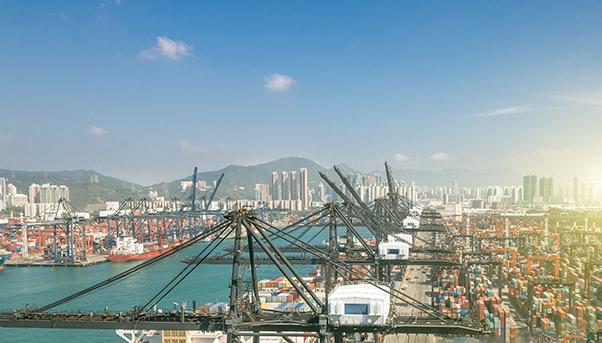
U.S. President Donald Trump might be raising the specter of protectionism but the real intent is to deal with countries on an individual basis. Such is the view of Robert J. Barro, an economics professor at Harvard University deemed to be among the most influential in the world.
«The current U.S. administration is more comfortable with bilateral trade negotiations than with multi-lateral ones», he says in an interview with “We Build Value”. «I see promise in expanded U.S.-China trade, including further opening up by China to imports and business investments from the United States».
Should this relationship develop, what are we to make of the U.S. and Europe?
«I also see great potential in a U.S.-U.K. bilateral trade deal. However, trade relations between the United States and the European Union, including Germany, are less likely to improve. The United States has complained a good deal about the NAFTA agreement, involving Canada and Mexico. For Canada, the result of negotiations is likely to be reduced restrictions on trade in specific goods, such as dairy products moving from the United States to Canada and lumber moving from Canada to the United States. With respect to Mexico, the main issue seems to be tightening up in the trade in goods coming from China and elsewhere and then going through Mexico to the United States. In this sense, changes in NAFTA as applied to Mexico interact with overall trade between China and the United States».
The World Bank expects global GDP growth to fail to reach 3% in 2017. This is in a way due to the contained growth of three big developed economies – the euro zone, Japan and the United States. Where should the blame lie for the lack of a sustained economic revival since the 2008 crisis?
«Future U.S. economic growth depends a lot on whether growth-promoting policies are implemented in Washington D.C. There is significant potential in policies involving fiscal and regulatory reform and infrastructure investment. A possible downside is protectionism, involving curtailment of international trade and immigration. I am optimistic overall about the attainment of U.S. GDP growth in the 3-4% range for a few years. I am less optimistic about growth prospects in the Euro zone and Japan. Parts of the Euro area have gone too far in terms of social programs and regulations, and these policies constrain economic growth. Japan has gone too far in terms of infrastructure investment and accumulated public debt and has basically been stagnating since the 1970s».
One problem appears to be a lack of productivity among developed economies. Why? Is it because industry has not invested in innovation? Or is it that governments are pursuing restrictive policies that do not foster growth?
«Government regulations are an important constraint on productivity growth, notably in the United States and the Euro area. Inefficient taxation, including the high rates of corporate profits taxation in the United States, are also counter-productive. Reduced business investment is a related phenomenon».

What role can infrastructure investment play to support global growth, especially in emerging countries?
«As a general statement, infrastructure investment should focus on projects with high social marginal products. This investment should not be viewed as a jobs program that works through expanding aggregate demand. Infrastructure is important for developing countries, but inefficient projects plagued by corruption are a common problem. Recent examples of promising large projects are the development of natural-gas resources off-shore from Israel, the Nairobi-Mombasa railroad, and, more speculatively, the canal in Nicaragua. Developments in fracking technology in the United States have also been important».
What should the Trump administration set as priorities for its infrastructure investment plan? And what impact could Trump’s infrastructure plan have on the U.S. economy?
«In the United States, the productivity of infrastructure investment is high in transportation areas such as highways, bridges, and airports. A major public program in these areas could, therefore, help to spur the growth of productivity and GDP. One reasonable form of financing for highway projects is an increase in the tax on gasoline. Also promising is increased reliance on private funding-related to private administration of toll roads, airports, air-traffic control, and so on. Given the high ratio of U.S. public debt to GDP, deficit financing for infrastructure investments is not so attractive».
What do you think of Trump’s economic reforms, such as the fiscal ones?
«Fiscal reform is promising for U.S. economic growth but is hard to accomplish politically. Any fiscal package will include a substantial cut in the excessive tax on corporate profits. Another good idea is cuts in marginal income-tax rates combined with broadening of the base for taxation-in the spirit of the Reagan tax reforms of the 1980s. A big issue is whether to implement a tax resembling the value-added tax (VAT) systems currently employed by most countries. These systems are much more efficient that the current U.S. system, which relies heavily on income taxation and lacks a broad-based tax on consumption».

